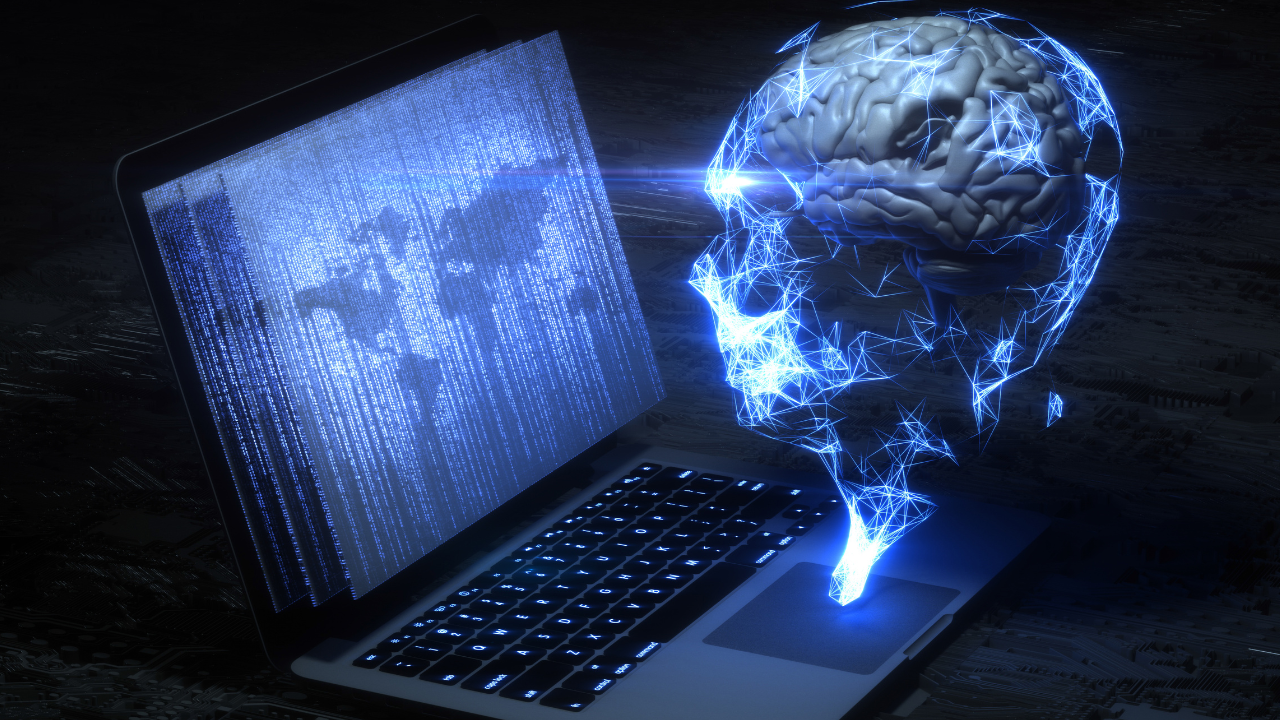Natural Language Generation: Bridging the Gap between Data and Communication

One of the most exciting developments in AI is natural language generation.
This technology enables machines to convert structured data into human-like language.
By automating content creation, natural language generation allows content developers to reach their target audience more effectively.
For instance, automated content can be shared on social media platforms or other media outlets, increasing its visibility.
Visualizations, such as charts and graphs, can also be generated from the data, making it easier to understand and interpret.
Speech Recognition: Enhancing Human-Computer Interaction

Speech recognition is another crucial aspect of AI.
It enables machines to convert human speech into a format that can be understood and processed by computers.
This technology has paved the way for virtual assistants like Siri and Google Assistant, which can understand and respond to user commands.
Speech recognition has also found applications in various industries, such as healthcare and customer service, where it streamlines processes and enhances user experience.
Virtual Agents: Transforming Customer Service and Assistance

Virtual agents, also known as chatbots, have become valuable tools for businesses.
These computer applications interact with humans, providing customer support and assistance.
Virtual agents can handle a wide range of tasks, from answering customer queries to organizing meetings.
Companies like Amazon and Google have integrated virtual agents into their platforms to enhance user experience and improve operational efficiency.
By utilizing natural language processing and machine learning algorithms, virtual agents can understand user preferences and provide personalized recommendations.
Decision Management: Harnessing Data for Informed Decision-Making
In today's data-driven world, decision management systems play a crucial role in various industries.
These systems leverage AI technologies to analyze and interpret data, enabling organizations to make informed decisions.
By automating data analysis, decision management systems provide real-time information, helping businesses identify risks, avoid errors, and streamline processes.
Industries such as finance, healthcare, and e-commerce have adopted decision management systems to gain a competitive edge and drive growth.
Biometrics: Enhancing Security and Identification
Biometrics, a field of AI, focuses on the identification and authentication of individuals using unique physiological or behavioral characteristics.
Deep learning algorithms are used to train machines to recognize patterns and make accurate identifications.
Biometric systems have found applications in various sectors, including aerospace, military, and healthcare.
From satellite object detection to worker safety monitoring, biometrics has the potential to improve efficiency, security, and safety in multiple domains.
Machine Learning: Unlocking Insights from Data

Machine learning is a fundamental aspect of AI that enables machines to learn from data without explicit programming.
By utilizing algorithms and statistical models, machine learning systems analyze large datasets to extract valuable insights.
This technology has diverse applications across industries.
In healthcare, machine learning algorithms can analyze patient data to predict diseases and recommend appropriate treatments.
The banking and financial sector can leverage machine learning for customer data analysis, risk prevention, and fraud detection.
Retailers can utilize machine learning to understand customer preferences and behavior, enabling targeted marketing strategies.
Robotic Process Automation: Automating Manual Operations

Robotic process automation (RPA) is an AI application that automates repetitive and rule-based tasks.
By configuring software robots, RPA eliminates the need for manual intervention in tedious processes.
This technology has gained popularity in various industries, helping organizations improve efficiency and reduce errors.
RPA can be applied in areas such as data entry, customer service, and finance, enabling employees to focus on more complex and value-added tasks.
Peer-to-Peer Network: Decentralized Data Sharing

Peer-to-peer networks facilitate direct data sharing between systems and computers without the need for a central server.
This technology has the potential to solve complex problems more efficiently and cost-effectively.
Cryptocurrencies, for example, utilize peer-to-peer networks for secure and decentralized transactions.
By connecting individual workstations, peer-to-peer networks promote data exchange and collaboration, eliminating the need for expensive infrastructure.
Deep Learning Platforms: Unleashing the Power of Neural Networks

Deep learning, a branch of AI, focuses on training machines to learn and make decisions through artificial neural networks.
These networks consist of multiple layers that process and analyze data hierarchically.
Deep learning platforms utilize powerful hardware and algorithms to automate predictive analytics and pattern recognition.
From aerospace to healthcare, deep learning has found applications in various industries, enabling advanced object detection, worker safety monitoring, and medical diagnostics.
AI-Optimized Hardware: Enabling High-Performance Computing

As the demand for AI software continues to grow, the need for specialized hardware that supports AI models has emerged.
Conventional chips are often insufficient to handle the computational requirements of AI algorithms.
To address this, organizations like Nvidia, Qualcomm, and AMD are developing AI-optimized hardware, including CPUs and specialized silicon for neural networks.
These advancements in hardware enable high-performance computing, supporting complex AI calculations and benefiting industries such as healthcare and automotive.
In Short:
Artificial intelligence technologies have transformed the way we live and work, revolutionizing industries and improving efficiency.
From natural language generation to deep learning platforms, AI has a wide range of applications that continue to evolve and expand.
As these technologies advance, it is crucial to consider ethical considerations, such as algorithmic bias and data privacy.
By embracing AI and implementing appropriate regulations and oversight, we can harness the transformative power of these technologies while protecting important human values.
%20(1000%20%C3%97%201000%20px).png)


%20(1000%20%C3%97%201000%20px).png)








